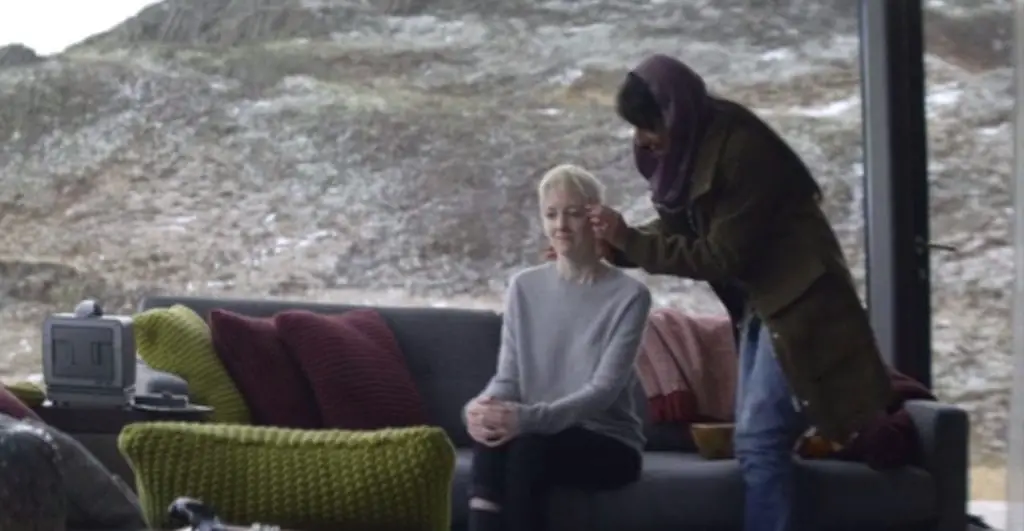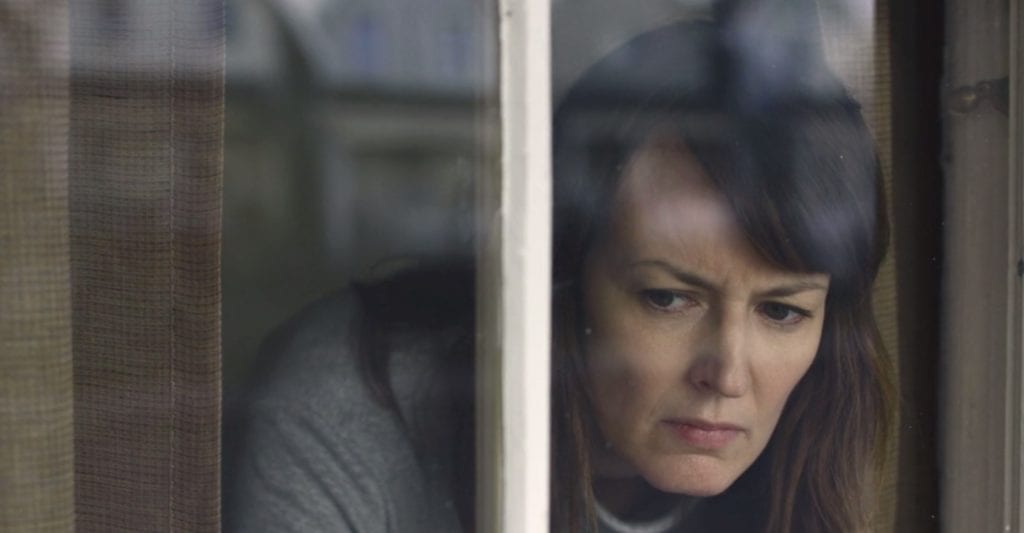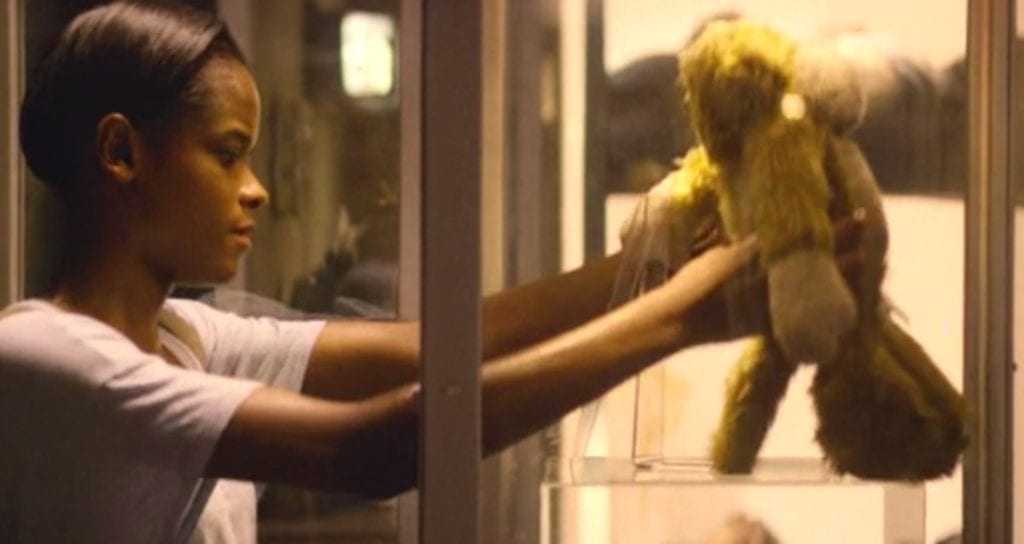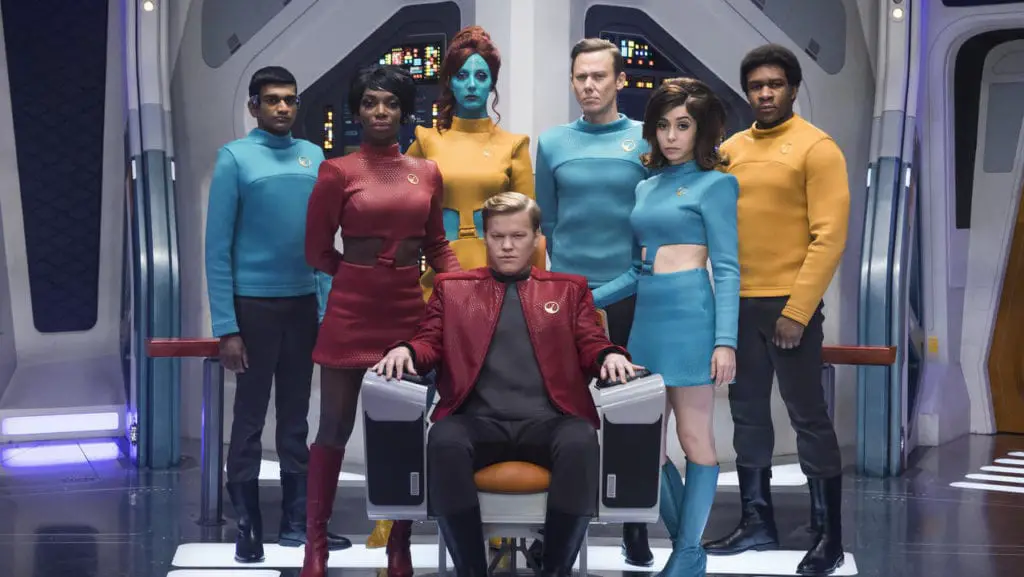Late last year Netflix dropped one hell of holiday gift on our hands with the fourth installment of the anthology series Black Mirror, created by Charlie Brooker. The show has a definite print on pop culture and recently gained critical acclaim by reinventing itself: despite being known for its bleakness and dark content, it was with the unusually happy and LGBT season three episode “San Junipero” that the Brooker was awarded its first Primetime Emmy Award.
This new season, in general, felt very much like a product of the times, current climate, and positive response to season 3. You see, it was only recently that I got around to actually go on a watching spree, but I did notice that, for example, season 4 is far more female-centric which was an absolute treat. Every single episode had at least one female lead, but most of them had more. I should say that it’s not like other seasons lacked on female representation, but episodes like “Shut Up And Dance”, “The Waldo Moment”, and “White Christmas” can come to mind where the roles for women were minimized.
Now, as I said season four was sort of different from previous entries because it tried to keep far less dark and gave more happy endings than one would expect from the show people namedrop when talking about how “we’re in a bad timeline”.
All this being said, it’s time to do the judging on how each episode held up. Through Easter eggs galore and technology that will take over our lives in the most unexpected ways in the future, let’s check out a season that was both inventive and derivative of itself, awesome, and fucked the watchers up in six excellent hours!
-
Metalhead
Definitely the least liked among people, this episode is also one of the most stylized and different, even if the premise is kept pretty simple without any major twists. We basically follow along a woman as she tries to run away from a mechanic dog that shoots trackers and can kill you with ease. The episode was shot in black and white and, due to its simplicity, it’s also the shortest one, clocking in 40 minutes.
There’s not much to say here and that’s not even because of the overall lack of dialogue: it’s simply that the episode is very straightforward. I should point out that it also provided some brief moments of actual horror and tension, so even the lowest rated “Metalhead” is still a good entry for Black Mirror.
-
Crocodile
This one also proved itself to be divisive between the watchers and some absolutely detested it and others praised the increasing intensity of the actions of one Mia Nolan, portrayed by Andrea Risenborough. The episode surrounds itself on an accidental murder that Mia and her boyfriend committed which comes to bite her in the ass several years later when the now former-boyfriend decides to come forward to the police about it. We follow along as an insurance worker, Shazia, starts investigating an entirely different accident using a machine that can show someone else’s memories. As Shazia eventually reaches Mia as a potential witness to the accident, things escalate immensely to an honest-to-god super unexpected ending.
I want to point out specifically that “Crocodile” would be the one episode this season to be the bleakest— some may argue in favor of “Metalhead”, but I think that, given “Crocodile” deals with human actions & consequences, it fares darker than an emotionless murdering dog that was put in place to protect objects from robbery. Incidentally, the insurance worker and her family made an incredibly captivating portrayal of a Muslim family on their day-to-day stuff that gets disrupted by a random encounter.
-
ArkAngel
Much like other episodes this season, “Arkangel” has been called derivative for its depiction of brain implants that allow one to see through another’s eyes. However, the story takes on a completely different thread as this is all about one mother using the technology to safeguard her infant daughter from everything she deems harmful.
The script goes to length to show how this procedure is harmful to the development of a child. In a way, it can be compared to that old story about kids who don’t leave the house during their first years never develop natural defenses against microorganisms—this, of course, being the plot of the book Everything, Everything, but dialed to eleven, like in Black Mirror. In this case, the daughter is kept away from anything that would cause her stress level to go up and, well, things escalate when she reaches teenagehood.
Once again, this episode doesn’t end in a complete happy ending, but it’s one that can be perceived as relatively hopeful from where you are standing. In the end, if you enjoy a complex familial/mother-daughter relationship/the Black Mirror equivalent to Lady Bird and I, Tonya, then you’re in for a treat with this one.
-
Black Museum
This episode could be called “1.2 Hours of Black Mirror Easter Eggs”, but I guess the actual title covers it pretty well. It was compared, with merit, to “White Christmas” because it too tells a couple different stories throughout and then closes off with a mind-blowing twist that sews everything together neatly before a deserved ride towards the sunset. It’s hard to talk about this episode without spoiling a lot, but basically, a woman portrayed by Black Panther’s Letitia Wright is on a road trip and stops at the Black Museum, a place where one Rolo Haynes collects objects that are involved with crimes. There, we get told three disturbing tech-related stories related to certain pieces, and if you look closely, you can catch a lot of references to previous episodes — or, if you don’t, then you can just read on one of the several articles out there pointing out every single easter egg.
-
Hang The DJ
Much life it was personally difficult to choose which would come first among “Crocodile”, “Arkangel”, and “Black Museum”, because they were all very efficient in eliciting responses from me, it is really hard to pick between #1 and #2. On one hand you have “Hang The DJ”, the episode that I was least looking forward to for its description, ended up being the first one I watched, and it immediately conquered hearts everywhere; on the other hand, you have the mega production that we’ll be talking about in #1. Both are personal favorites, but in the end, I guess “Hang The DJ” took #2 for being slightly simpler, but still amazing.
So, what is this episode that people have rightfully drawn comparisons to Black Mirror’s own “San Junipero” and the movie The Lobster? The answer is, as described by the creators themselves, it is as close as Black Mirror will get to a romantic comedy.
It focused on a world where one must compulsorily engage in relationships dictated by an app. It is this sort of app called Coach that pairs people up and determines how long they will remain together in a shared house. The episode establishes that this behavior is mandatory and breaking it will ensure punishment and exile to “beyond the walls”, so everyone has the participate. In the end, based on what Coach learns about each person throughout their relationships, it creates soul mate partnerships with 99.8% accuracy.
This brings us back to our protagonists Amy and Frank who start the episode as they embark on a date with each other. If I may spoil a bit of the episode, the couple hits it off pretty well right off the bat, but Coach only allows them to be together for 12 hours. After the period, we see them through fast-pairings and frustrated relationships until they get paired together once again by the system. From then on, the story develops in ways you most likely won’t guess.
“Hang The DJ” became one of the favorites among the watchers. Personally, it warmed me up in a similar way to how I felt watching “San Junipero” because of how it portrayed the relationship between the two lead, the chemistry, and how clever the technology aspect influenced their behavior.
-
USS Callister
By far, this was most likely the most expensive episode from the season and probably the show itself and it shows on the production value. The whole premise surrounds a Star Trek spoof called Space Fleet and the details are incredibly well done, from the different opening sequence to how we go about towards the jaw-opening finale.
Before we reach any spoilers, let’s just get to the point: Charlie Brooker managed to create a fun and serious episode about toxic masculinity and the dangers of Nice Guys ™. The male lead, portrayed by Fargo’s Jesse Plemons—oh, speaking of Fargo, this episode reunites co-stars Plemons, Cristin Millioti, and even a cameo from Kirsten Dunst to make this a season 2 reunion of sorts—suffers from not being taken seriously and his passive attitude towards his relationship with others and take it out on the crew of the USS Callister.
Ok, if the last paragraph confused you, then here’s an explanation: the Space Fleet stuff is part of an online game, if you will, in which one can enter the gaming simulation, like an ultra-advanced VR, if you will. In the episode, the creator of the technology, Plemons’ Robert Daly, suffers on his daily life from his boss and co-workers. This prompted him to create a special version of the game that emulates his favorite show, Space Fleet. So far so good, right? Here’s the twist: he also created a device that creates avatars based on their DNA. Basically, Daly got DNA from all the co-workers he had beef with and cloned them into the game in which he is an “asshole God”, controlling every aspect of it, basically enslaving the fully sentient players to do whatever he wants or suffer the consequences.
This goes on for god-knows-how-long before Cristin Millioti’s Nanette Cole shows up as a new employee at Daly’s company. He takes a liking to her kindness and idolatry and puts her in the game as well, but the game version of her won’t just accept being a slave to Daly.
Besides highly quotable (“Stealing my pussy is a red fucking line” is my personal favorite) as I said, the episode is a high-class act in dealing with toxic masculinity and its effects on the behavior of men. The ending is fantastic, hopeful, and even features a cameo from Aaron Paul, to crown this season of Black Mirror the most feminist yet, if you will, with different and complex portrayals of women of different ethnicities, classes, and even morality conceptions.







